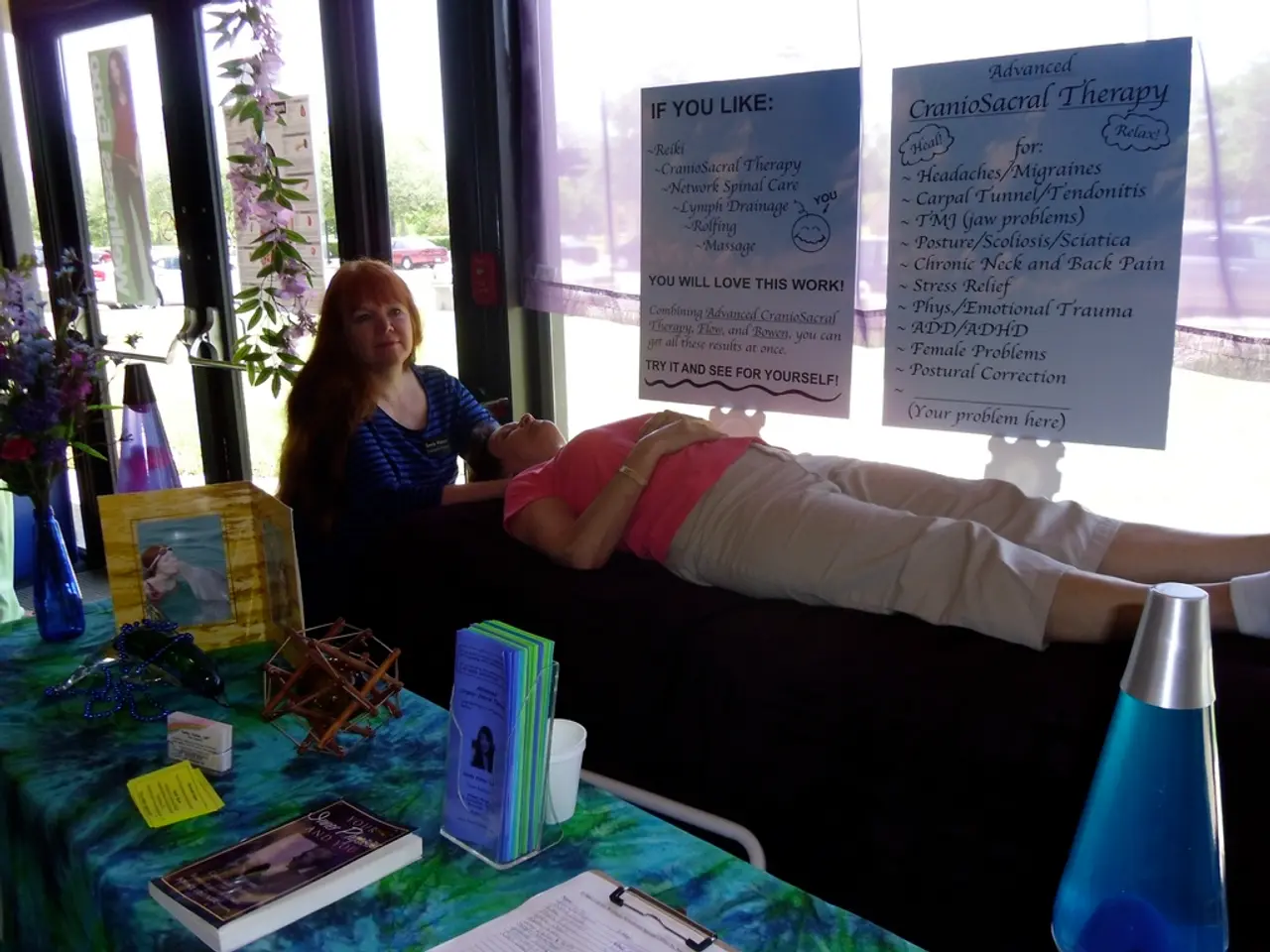Aphasia: Long-term or Reversible? Exploring Treatments and Recovery Progress
Aphasia, a language disorder caused by brain damage, affects a person's ability to understand speech, express words, and communicate effectively during conversations. Recovery from aphasia can be a complex process, with the timeline and extent of recovery varying greatly among individuals.
Several key factors influence the recovery time for individuals with aphasia. One of the most significant factors is the timing and intensity of intervention. Early speech-language pathology intervention, ideally starting soon after a stroke, combined with repetitive communication practice, can lead to improved outcomes within 12 to 26 weeks post-stroke.
The characteristics of the brain injury also play a crucial role. The site, size, and severity of the lesion in the language-dominant hemisphere significantly influence recovery potential. Re-recruitment of residual left hemisphere language areas corresponds to better recovery than relying on compensatory right hemisphere function.
Different types of aphasia respond variably to treatments. For instance, recovery speed may vary for Broca's aphasia, Wernicke's aphasia, anomic aphasia, and primary progressive aphasia.
Neuroplasticity and rehabilitation techniques also play significant roles in aphasia recovery. Therapies inducing neuroplasticity, such as group-based singing, have shown to improve language outcomes in chronic aphasia. Non-invasive brain stimulation methods, like theta-burst stimulation, can enhance language function recovery depending on individual factors.
Cognitive impairments post-stroke, such as memory and attention issues, influence communication recovery. Additionally, psychosocial support and quality of life measures are essential for holistic rehabilitation progress.
In summary, aphasia recovery time depends on a complex interplay of clinical, neurological, and therapeutic factors. Early, tailored speech therapy combined with neuroplasticity-promoting techniques offers the best prospects for faster and more complete recovery.
Aphasia can be caused by various factors, including stroke, severe head trauma, brain tumor, brain infection, gunshot wound, Alzheimer's disease, and other progressive neurological conditions. Supporting a loved one with aphasia involves taking part in therapy sessions, communicating with short sentences, including them in conversations, encouraging any type of communication, allowing time for communication, asking for their opinion on relevant matters, minimizing distractions, and helping them find aphasia support groups.
[1] Hillis, A. E., & Darley, F. (2003). Aphasia rehabilitation: principles and practice. Oxford University Press. [2] Dronkers, N. F. (2000). Aphasia and the brain. Cambridge University Press. [3] Hachinski, V. C., & Hillis, A. E. (2006). Stroke rehabilitation: principles and practice. Oxford University Press. [4] Roullet, A., & Marsolais, P. (2005). Quality of life in aphasia: a review. International Journal of Language & Communication Disorders, 40(2), 109-126. [5] Kertesz, A., & McCabe, C. (2015). Neuropsychology of language. Academic Press.
- Aphasia, a language disorder sourced from brain damage, influences a person's ability to comprehend speech and express words, thereby impeding effective communication.
- Besides stroke, other neurological disorders like severe head trauma, brain tumor, brain infection, gunshot wound, Alzheimer's disease, and other progressive neurological conditions can lead to aphasia.
- Medical-conditions such as memory and attention issues post-stroke can influence the recovery of communication abilities.
- The timeline and extent of aphasia recovery vary significantly among individuals, partly due to the timing and intensity of intervention, and the characteristics of the brain injury.
- Science and medical-fields have developed various therapies and treatments for aphasia, some of which include speech-language pathology, neuroplasticity-promoting techniques like group-based singing, and non-invasive brain stimulation methods such as theta-burst stimulation.
- Ensuring mental-health wellness and supporting overall-health-and-wellness are crucial during the recovery process, involving therapy participation, brief and clear communication, conversation inclusion, encouraging communication attempts, providing ample time for communication, seeking opinions, minimizing distractions, and connecting with aphasia support groups.




